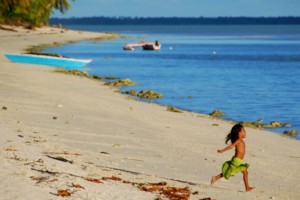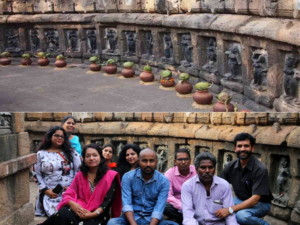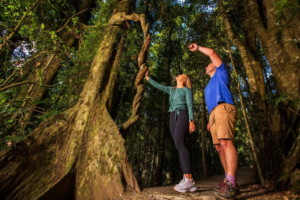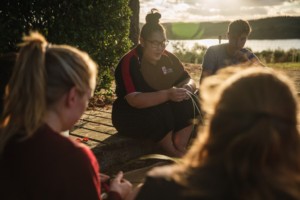Living the good life: Can tourism help save a host community from itself?
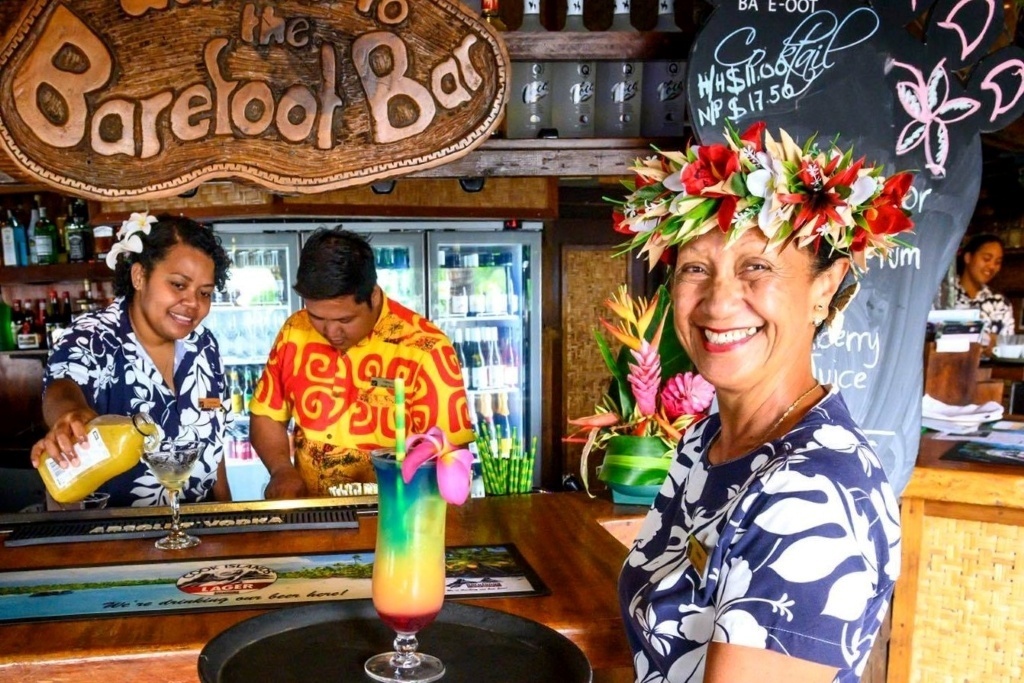
Much has been made about how travel & tourism exploits host communities. But can our industry proactively improve locals’ health and well-being? Ani Thompson thinks so. In this “Good Tourism” Insight, the hotelier shares how she has leveraged the resources available to her to help tackle the scourge of noncommunicable diseases in her native Cook Islands.
[Thanks to Regina Scheyvens for inviting Ms Thompson to write a “GT” Insight.]
In the Cook Islands, days end well when you share lots of food with family and friends. Having grown up a Polynesian in these beautiful islands I am of a culture that rewards a great amount of work with a great amount of food. Of course there is nothing wrong with this mentality in moderation. However, the harsh reality is that we have been living an unbalanced lifestyle for too long. We are used to having our cake and eating it too.
This is why noncommunicable diseases (NCDs) are prevalent in the Cook Islands among both adult and youth populations. A survey report by The Cook Islands’ STEPwise Approach to Chronic Disease Risk Factor Surveillance (2004) found that the adult population aged 25 – 64 years had an obesity rate of 61.4%, with hypertension (33.2%), diabetes (23.6%), and elevated blood cholesterol (75.2%) also prevalent. More recently, The Pacific Science for Health Literacy Project identified rising overweight/obesity rates (currently 91%/72%) among Cook Islands’ adults. These trends are being observed in younger age groups also, with the Global School Health Survey reporting rates of 63.7%/35.5% overweight/obesity in students aged 13 – 17.
Also see Erdogan Koc’s “GT” Insight
“Do all-inclusive holidays promote gluttony, obesity?”
These statistics are shocking. They are the worst among the PICTS (Pacific Island Countries and Territories). It is no wonder then that the lifestyle of the Cook Islands, including the widespread consumption of junk food and a lack of physical exercise, is a contributor to the prevalence of NCDs within the country.
We know this. Yet we have all been ‘too busy’ to address this issue within our workplaces, our communities, and our families.
No big deal … until it is
A little over 100 staff work at Pacific Resort Rarotonga and 30% of them would be suffering some sort of NCD, or a member of their family would. Before COVID I had staff members calling in sick often due to gout, high blood pressure, or other NCD-related ailment. This is so common in our islands it is widely accepted as normal; no big deal … until it becomes a big deal when, for example, someone had an open wound that won’t heal.
As an employer, is it really my place to tell my staff how to live? Or does it start to sound like nagging? I have for many years encouraged my staff to come with me, in my car if needed, to early morning fitness group sessions in the resort grounds with staff and guests together. It is fun but can be a bit of a distraction when there are other operational priorities. But I couldn’t always drive to their houses every other morning at 5:30 am. And they didn’t always want to be taken away from their families so early. I knew it wasn’t a sustainable way to encourage better lifestyles among my staff, but for years it was better than nothing.
In crisis, opportunity
Then COVID-19 arrived and everything came to sudden standstill for the first time in history. In all my 38 years in the Cook Islands I had never seen my country or our resorts so quiet. It was eerie. And no-one could have predicted the length of time COVID has kept our country closed off to the world.
The first few months were relatively easy, but the situation started to affect the mental health of many of my staff. To keep them busy both physically and mentally, we ran courses incorporating cross training with skills training for as many staff as possible. This was great for their CVs but it wasn’t addressing the real issues in our community, which were that regardless of further upskilling or qualifications, once you are sick or tending to an illness this could put you back out of work for days or even weeks on end.
Before the pandemic I was aware of neglected places nearby, and of opportunities missed, because of how busy we have all been. I soon realised that as the regional general manager of one of the largest employers in the Cook Islands, Pacific Resort Hotel Group, I had a real opportunity to make a big difference; an opportunity to positively influence not only our workplace but also its many extended families. I realised that through community-based outreach programs, we could keep ourselves busy, keep our minds active, add value to our communities, and do as much as we could to enhance our environment for not only ourselves but also for our guests when they return.
Also see John Morris Williams’ “GT” Insight
“How to make a hotel green & responsible: Get on with it!”
Some of the activities we rolled out included planting new hedges for the homes near our resorts and renovating community spaces, including creating a makeshift COVID clinic. By using the skills within my team — our electricians, carpenters, plumbers, painters, and housekeepers; some 40 people in total — we were able to completely transform a near derelict community meeting hall into a clean and safe environment for all to enjoy.
The silver lining on the COVID cloud has been the opportunity it has given us. And I am blessed to have the resources of Pacific Resort Hotel Group to help add value to small areas of our island; value that I hope will endure beyond these unprecedented times.
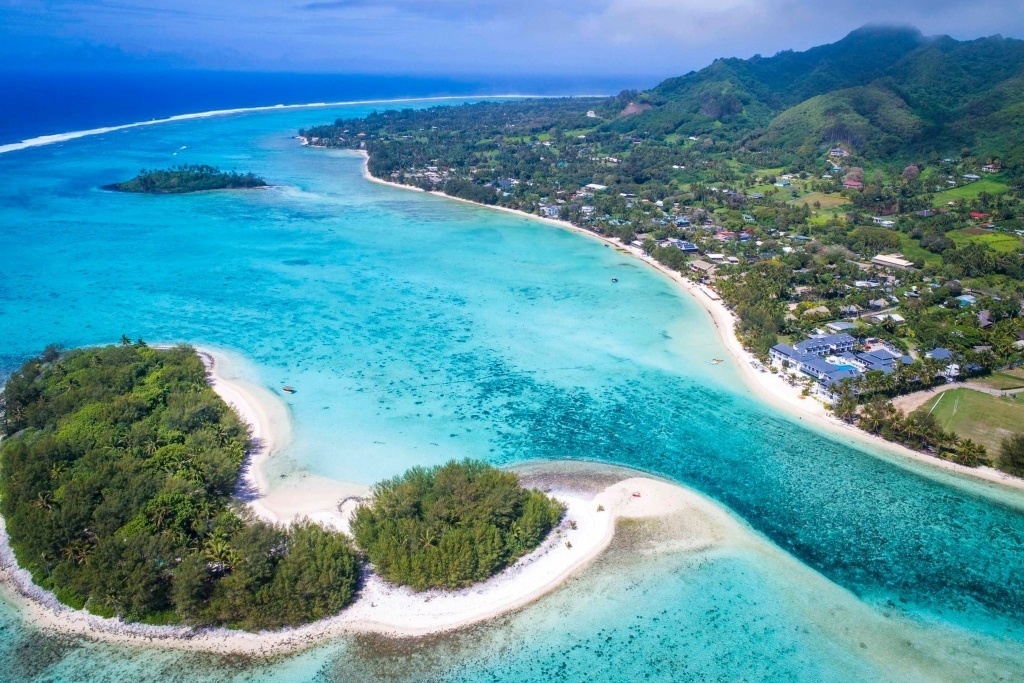
Healthy body, healthy mind
At writing our renovated community hall is now the venue for seven different group activities per week. Many of these activities encourage physical exercise and healthy lifestyles. All my staff attend the majority of these activities of their own free will.
The hall and its schedule of activities positively influences the wider community because crowds attract crowds. Over the past four months activities have attracted on average more than 200 regulars (double our staff numbers) who often bring along their children, partners, siblings, et cetera, for an hour a day of exercise. This is still a very small number in comparison to Rarotonga’s population, however new ideas on how to fight NCDs keep springing from our humble community activity.
From the perspective of the families of our team members, it matters to know that when our loved one goes to work that they are enjoying their time there; that they are not feeling uncomfortable, sore, stressed, or that their illnesses aren’t getting the better of them.
Our initiative and the experiences that have followed have been a win/win/win. Our people, business, and community are all healthier and more productive as a direct result of us caring more. Recognising that we can make a difference has meant that we have gone the extra mile, had fun, and helped tackle the silent killer of NCDs.
Happy people, happy place
When borders reopen, the next step in our journey will be including our international guests in our community activities; offering them an opportunity to engage with our team members on their lunch breaks and in their spare time; as individuals rather than service providers.
You might note that as a hotelier I am not in the business of health or fitness. And you might ask: “Why do this?” My answer: Because we are not only in the place business but also the people business. A destination is both. Who wouldn’t be attracted to a country, a community, or an organisation with a vibrant zesty soul?
As travel & tourism professionals we need to remember and be mindful that there is a local community around us that is intertwined and interconnected with us one way or the other. Community is integral to our destination. So not only should we give back to community, we should be community.
Whoever said you can’t have your cake and eat it too?
What do you think? Share a short anecdote or comment below. Or write a deeper “GT” Insight. The “Good Tourism” Blog welcomes diversity of opinion and perspective about travel & tourism because travel & tourism is everyone’s business.
Featured image (top of post): Barefoot Bar: Living the good life in the Cook Islands. Image supplied by Ani Thompson.
About the author
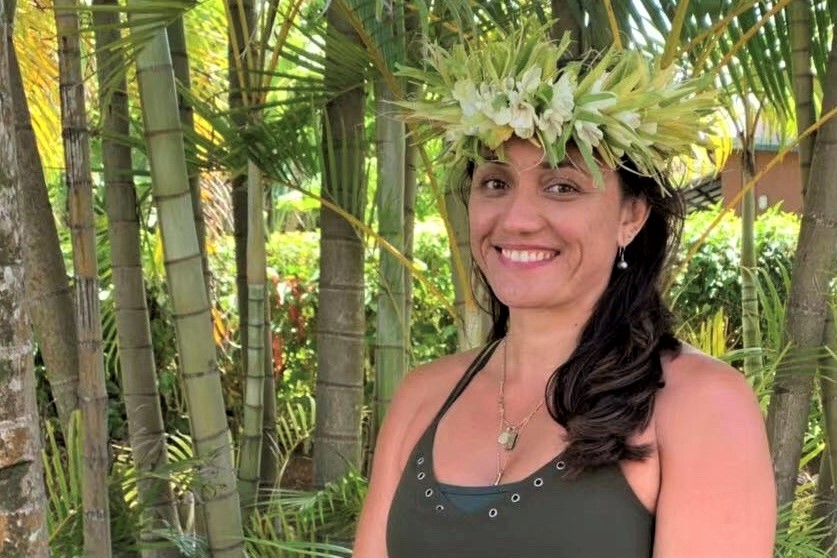
Born and raised in the Cook Islands, Ani Thompson is the regional manager for the Pacific Resort Hotel Group, “the Cook Islands’ leading luxury resort group”. Having accumulated various vocational certificates in leadership, hospitality, and adult learning, among other useful skill sets and knowledge areas, Ms Thompson is currently completing her Master Certificate in Hospitality Management with Cornell University as well as a diploma in Business Leadership with the Cook Islands Tertiary Training Institute (CITTI).
Ani’s passions outside of work include supporting a variety of fitness groups and projects all over the Cook Islands. And she has been known to spin tunes at local festivals and clubs as one of Rarotonga’s few DJs for EDM (electronic dance music).


